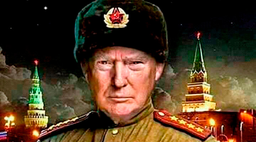The legislative push to amend Russia’s Criminal Code to expand the scope of treason and related offenses signifies a critical moment in the country’s domestic politics. This development aligns with a broader trend of increasing repression, likely aimed at maintaining regime stability in the face of mounting internal and external pressures.
Key Details of the Proposed Law
-
Amendments to Treason Statutes:
- Article 275 of the Criminal Code, addressing “State Treason,” is being broadened.
- A new Article 276.1 introduces a loosely defined offense of “aiding the enemy,” applicable even to foreign nationals in Russia.
- These updates enable wider criminalization of actions deemed hostile to Russian national security, including political dissent or activities classified as “foreign collaboration.”
-
Implications for “Foreign Agents”:
- Current foreign agent laws, already used to stifle NGOs, media, and activists, will likely converge with the expanded treason statutes.
- Critics labeled as foreign agents could now face accusations of “political espionage” or “aiding adversaries,” further shrinking space for dissent.
Historical and Political Context
This escalation mirrors historical precedents, such as the tightening grip of autocracies following military failures. The reference to Russia’s Tsarist regime post-Russo-Japanese War (1905) is particularly apt. Faced with domestic unrest and systemic instability, the regime oscillated between harsh repression and cautious liberalization, both of which ultimately failed to preserve its power.
Why Now?
The timing of this legislative shift suggests that the Kremlin is preparing for a post-war reality:
- Anticipated End of the Ukraine Conflict: As Russia approaches the conclusion of its “Special Military Operation” in Ukraine—whether by attrition, stalemate, or negotiation—the regime will lose the unifying effect of a wartime narrative.
- Managing Domestic Fallout: Without the external focus of the war, internal discontent and economic strain may intensify. Repression offers a preemptive mechanism to stifle dissent.
Scenarios for the Regime’s Survival
The analysis outlines two probable trajectories:
-
Continued Repression:
- Amplifying state terror to maintain control risks economic exhaustion and governance collapse.
- Historically, such reliance on violence has a high cost in state capacity, potentially leading to an unmanageable “perfect storm” of crises.
-
Forced Liberalization:
- Easing repression to address systemic dysfunction might reduce tensions temporarily but could empower factions within the elite or opposition groups, paving the way for a controlled or uncontrolled regime change (e.g., “color revolutions”).
Why Repression May Fail
- Russia’s governance model, based on manual crisis management, is inherently unsustainable in the long term. Expanding legal definitions of treason might suppress dissent momentarily but will not address the underlying socio-economic and political crises.
- The lack of institutional capacity to execute either a sustainable repressive apparatus or genuine liberalization suggests the Kremlin is cornered, with limited options.
Conclusion
The amendments to Russia’s Criminal Code signal the regime’s inability to transition into stable governance without external crises. Instead, it relies on deepening repression to navigate the post-war era. This approach, however, risks exacerbating internal vulnerabilities, potentially culminating in either a spontaneous systemic collapse or a negotiated transformation driven by elite factions. The trajectory chosen—or forced—will define the timeline and manner of the regime’s decline.
This moment, fraught with heightened risks for dissenters and citizens alike, underscores the cost of authoritarian resilience in the face of systemic failure. As the regime doubles down on punitive measures, it inadvertently reveals the fragility of its foundation.

